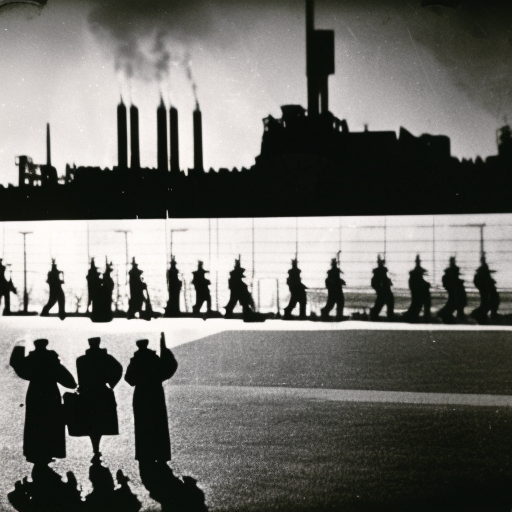The War of the Fourth Coalition
The War of the Fourth Coalition was a conflict that took place from 1806 to 1807 between Napoleon Bonaparte’s French Empire and a coalition of European powers, including Prussia, Russia, and the United Kingdom. The war was primarily fought in Central Europe and had significant implications for the balance of power on the continent.
Background: The war was a result of the ongoing power struggle between Napoleon and the other European powers. In 1805, Napoleon had decisively defeated the Austrians and Russians at the Battle of Austerlitz, establishing French dominance in Central Europe. This victory led to the formation of the Third Coalition against France, which included Austria, Russia, and the United Kingdom. However, Napoleon’s military prowess and strategic brilliance allowed him to defeat the coalition forces in a series of battles.
Prussia’s Decision: In 1806, Prussia, feeling threatened by Napoleon’s expanding empire, decided to join the coalition against France. Prussian leaders believed that they could challenge Napoleon’s dominance and regain their lost territories. However, Prussia’s military was ill-prepared and lacked the necessary resources to effectively confront the French army.
Napoleon’s Campaign: Napoleon launched a swift and devastating campaign against Prussia. He defeated the Prussian forces at the Battle of Jena-Auerstedt in October 1806, inflicting heavy casualties and capturing large numbers of prisoners. This victory allowed Napoleon to occupy Berlin and effectively neutralize Prussia as a major military power.
Russian Intervention: Despite Prussia’s defeat, Russia continued to resist French dominance. Russian forces, led by General Bennigsen, launched a counteroffensive against Napoleon’s army. The two sides clashed at the Battle of Eylau in February 1807, resulting in heavy casualties on both sides. The battle ended inconclusively, but it demonstrated that the Russian army was a formidable opponent.
Treaty of Tilsit: In June 1807, Napoleon and Tsar Alexander I of Russia met at the town of Tilsit to negotiate a peace settlement. The resulting Treaty of Tilsit marked a turning point in the war. Prussia was forced to cede significant territories to France and Russia, effectively reducing its power and influence. Russia, on the other hand, agreed to join Napoleon’s Continental System, which aimed to isolate the United Kingdom economically.
Impact: The War of the Fourth Coalition had far-reaching consequences for Europe. It solidified Napoleon’s dominance on the continent and weakened Prussia as a major power. The treaty with Russia also allowed Napoleon to focus his attention on other areas, such as the Iberian Peninsula, where he sought to expand his influence. Additionally, the war highlighted the effectiveness of Napoleon’s military strategies and tactics, further enhancing his reputation as a military genius.
In conclusion, the War of the Fourth Coalition was a significant conflict that shaped the balance of power in Europe. Napoleon’s victories over Prussia and Russia demonstrated his military prowess and established French dominance on the continent. The resulting Treaty of Tilsit further solidified Napoleon’s position and weakened Prussia’s influence. The war marked a turning point in European history and set the stage for future conflicts and power struggles.












